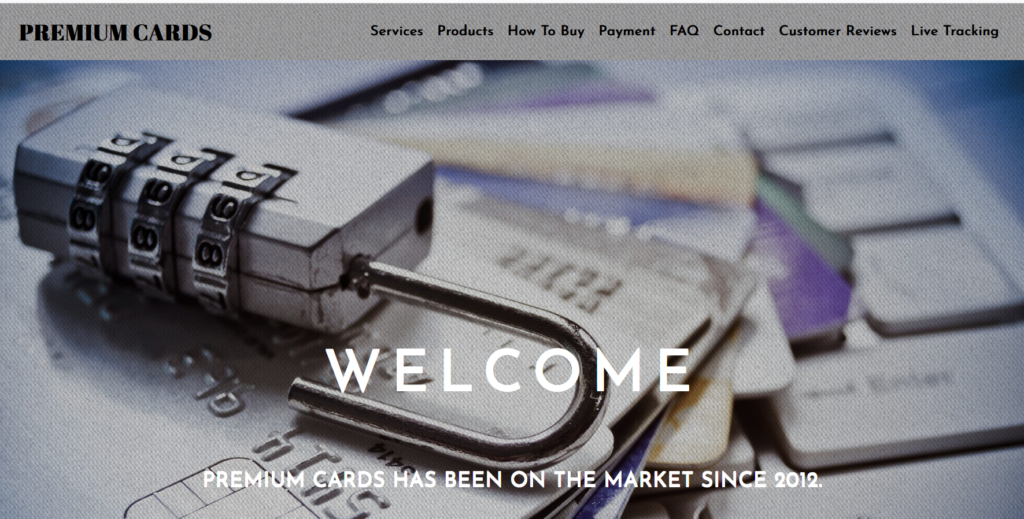Table of Contents
TogglePremium cards – TOR Scam Report (5)
Onion Link: http://hbl6udan73w7qbjdey6chsu5gq5ehrfqbb73jq726kj3khnev2yarlid.onion
Scam Report Date: 2024/01/17
Client Scam Report Breakdown
Original Report Summary:
The client in this scam report details their unfortunate experience with a fraudulent online service called “Premium Cards,” which advertises the sale of prepaid debit cards loaded with funds that are supposedly “cleaned” to be untraceable and safe for use. According to the report, the client purchased one of these cards, expecting to receive it through the advertised delivery methods. However, the card never arrived, and the promised follow-up email communication from Premium Cards—meant to provide tracking information and shipping details—was never received. The client attempted to reach out for support, but received no response, leaving them both financially defrauded and without any means of recourse.
Analysis of the Service and Red Flags
The service described by Premium Cards is a classic example of a scam operation, using sophisticated language and promises to lure in victims. The site boasts of providing prepaid debit cards that are both “untraceable” and “risk-free,” targeting individuals who may be seeking illegal or questionable means to launder money or anonymously access large sums of cash. The terminology used, such as “cleaned multiple times” to describe the funds, and the promise of “unblockable” cards, is designed to give the appearance of a highly secure, professional service, when in fact it is a front for a scam. Additionally, the service’s claim of being “proudly listed on the official Hidden Wiki” and the use of a .onion address, which indicates a website accessible only via the Tor network, further suggests that this operation is targeting individuals involved in the dark web, where illegal activities are more common. These details are crucial for understanding the nature of the scam and the psychology behind its targeting.
Key Terms and Warning Signs
Several key terms and concepts in this scam report need to be clarified to fully understand the nature of the scam. “Carding,” which the site references, is an illegal activity involving the use of stolen credit card information to purchase goods or services. “Cloned cards” refer to counterfeit cards made using stolen card information, which are highly risky because they can easily be detected and blocked by banks. The promise of “risk-free cashout” is a red flag, as no financial transaction is entirely risk-free, especially those involving anonymous prepaid cards. The use of cryptocurrencies like Bitcoin, Monero, and Ethereum as payment methods is another significant warning sign. While these currencies offer legitimate benefits, such as privacy and security, they are also commonly used in scams because they are difficult to trace and recover once sent. The absence of customer support or any form of communication after the payment was made, as reported by the client, is a classic indicator of a scam. The supposed customization options, such as adding specific names or designs to the cards, are likely just a ploy to make the service seem more legitimate and trustworthy, when in reality, it is part of the scheme to extract more money from victims.
Conclusion and Lessons Learned
This report highlights the importance of skepticism and caution when dealing with online services, particularly those that make extraordinary promises, such as untraceable transactions or risk-free financial products. Premium Cards is an example of a well-crafted scam that preys on individuals who may be looking for illegal or unethical financial solutions, exploiting their willingness to pay for anonymity and security. The client’s experience underscores the necessity of thoroughly researching any online service before making a purchase, especially when dealing with services on the dark web or those that use cryptocurrencies as payment methods. It also serves as a reminder that services that seem too good to be true, particularly in the financial sector, often are. Consumers should be wary of red flags such as lack of communication, unusual payment methods, and the promise of risk-free transactions, as these are common tactics used by scammers to defraud unsuspecting victims.







